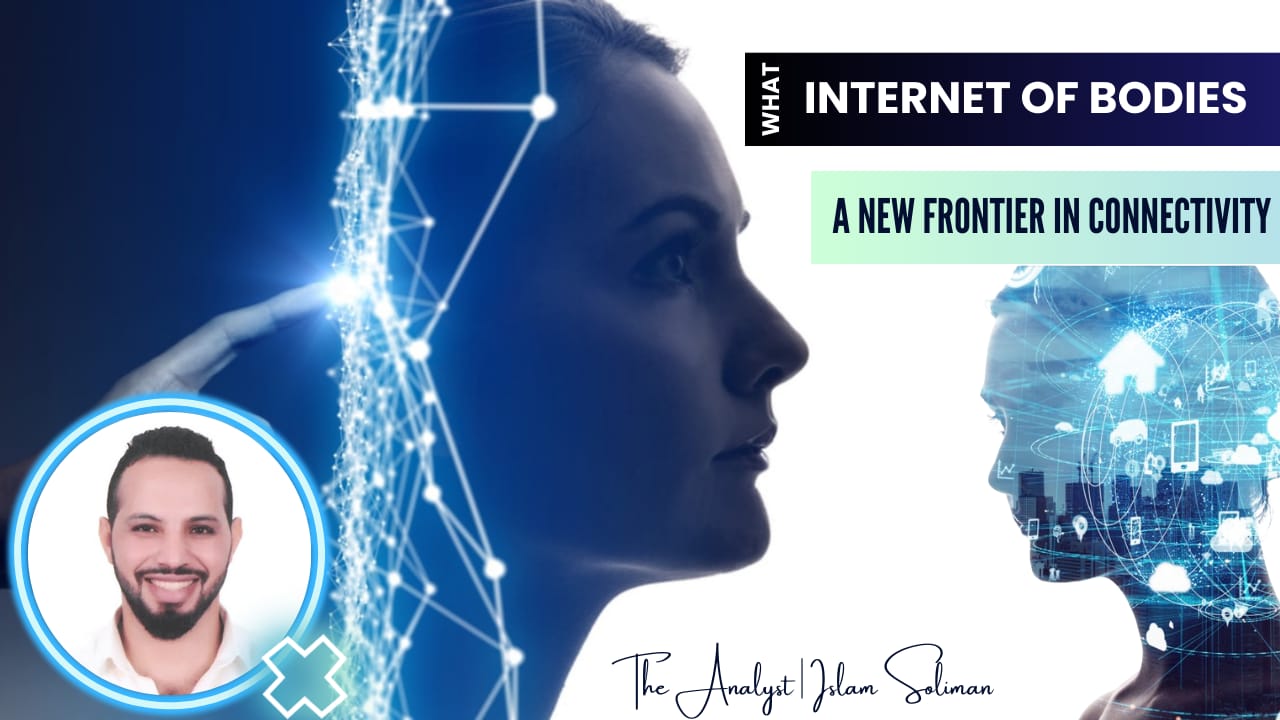
The Internet of Bodies (IoB): A New Frontier in Connectivity
AED 0.00
Category: Articles
Description:
Business Analyst | Data Analyst | Data Visualization | Business Development | Programmer
Imagine a world where your fitness tracker isn't just counting steps, but monitoring your blood sugar in real-time. Or a tiny sensor implanted under your skin delivers medication directly when needed. This is the exciting (and sometimes a little scary) world of the Internet of Bodies (IoB).
What is the Internet of Bodies (IoB)?
Regular IoT devices, like smart thermostats or voice assistants, interact with our environment. IOB devices, on the other hand, interact directly with us, becoming an intimate part of our biology.
Types of IOB Devices
- Wearables: These are the most common IoB devices, like smartwatches that track heart rate and sleep patterns, or fitness trackers that monitor activity levels.
- Implantables: These devices go beneath the skin, like pacemakers that regulate heart rhythm or continuous glucose monitors (CGMs) that track blood sugar for diabetics.
Ingestibles: Imagine swallowing a tiny pill that monitors your gut health or delivers medication directly to your intestines - that's the future of ingestible IoB devices!
The Impact of IoB on Our Lives
The IoB has the potential to revolutionize healthcare by providing personalized treatment and improving diagnostic accuracy. It can lead to better health outcomes, increased productivity, and enhanced safety. However, it also raises concerns about privacy, data security, and ethical issues, such as the potential for discrimination and bias.
The Double-Edged Sword: IoB's Impact on Our Lives
The IoB has the potential to revolutionize healthcare. Imagine doctors constantly monitoring your health data, allowing for early detection of problems and personalized treatment plans. Athletes could use IoB devices to optimize training and prevent injuries.
However, there are also potential downsides. Data privacy is a major concern. Who owns your health data? Could it be hacked or misused by insurance companies or employers? Security breaches could also lead to malfunctions in implanted devices, with potentially dangerous consequences.
Staying Safe in the IoB Age
Here are some things to keep in mind when considering IoB technology:
- Do your research: Understand the risks and benefits of any IoB device before using it.
- Data privacy matters: Choose devices with strong security features and clear data privacy policies.
- Be transparent with your doctor: Discuss your IoB use with your healthcare professional to ensure it aligns with your overall health plan.
Resources to Learn More:
- The Center for Internet of Bodies at Purdue University: [Center for Internet of Bodies - Purdue University engineering.purdue.edu]
- RAND Corporation: - Internet of Bodies: Our Connected Future: [RAND Corporation: - Internet of Bodies: Our Connected Future] rand.org]
The IoB is a rapidly evolving field with the potential to both improve our health and challenge our sense of privacy. By staying informed and making wise choices, we can harness the power of IoB technology to create a healthier, more connected future for ourselves.
Instrcutor : Islam Soliman.
Email: Islam.mohamed@gmail.com
Website: www,italkedtech.com
LinkedIn : www.linkedin.com/in/islam-soliman-1a3959110
Youtube Link: https://www.youtube.com/@theanalystislamsoliman8411
Facebook Channel Link: https://www.facebook.com/isba.digital/
Connect Cell Phone No.: 00971505055892

















